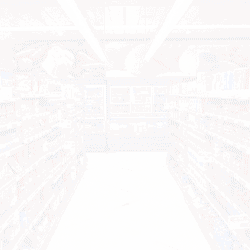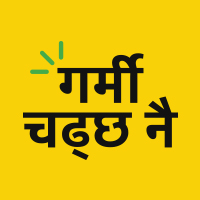Water scarcity in earthquake-affected settlements
We use Google Cloud Translation Services. Google requires we provide the following disclaimer relating to use of this service:
This service may contain translations powered by Google. Google disclaims all warranties related to the translations, expressed or implied, including any warranties of accuracy, reliability, and any implied warranties of merchantability, fitness for a particular purpose, and noninfringement.


Due to the earthquake that happened last November 17, the source of Kapke water supply scheme located in Barekot-Village-9 dried up. 120 families in Kapke have been without water supply for about 7 and a half months after the spring was submerged by about one foot.



Locals are forced to walk for half an hour to Siddherikhola spring to fetch water. 'When there is a shortage of water, we are forced to drink,' said local Gajendra Vick, 'We are forced to get up in the middle of the night to fetch water, women and children have to work all morning to fetch water.' Water supply and the tank and spring of Ward 1 Bayala water supply scheme have been damaged, due to which nearly 200 families from 2 villages are also forced to walk for half an hour to bring water from rivers such as Panikhola, Laherekhola, Jamun. "One garri of water brought in the morning is not enough to cook food, one person's job is to carry water all day without feeling hungry or thirsty," said local Vimala Gharti. And there is a compulsion to go down to the river to wash clothes.' According to the office, water supply has been stopped due to the destruction of 106 water supply schemes including tanks and pipelines. In Nalgad municipality, there has been a water crisis as 23 schemes have been completely damaged and 26 schemes have been partially damaged. Mayor Dambar Bahadur Rawat said that around 3,000 families were forced to cross the river, Bheri river and various springs in search of mines after the water supply schemes including Halchaur, Kaikhola, Tiuri, and Bolikhola were damaged in Nalgad. "Residents of the Bheri riverside settlements are forced to consume contaminated water from the river," he said. Head of Nalgad Nagar Hospital Vishal Upreti said. He says that up to 150 patients come to the hospital daily for treatment. "After the earthquake, health problems have increased even when people living in taharas defecate in the open," he said. Although some people use the old toilets, most of the residents are defecating in the open around the tower.
The shortage of drinking water has also occurred in Bheri municipality located at the headquarters. "There was a water supply problem here every year in winter and summer," said Basant Prasad Sharma, the ward president of Bheri municipality-4, "the springs that supply water to the market also dried up due to the earthquake, water comes once in 3/4 days, so we had to deliver it."
Residents of Kudu, a vast area on the banks of the river Bheri located in Bheri municipality-13, have been suffering from water shortage for years. A tap has been installed for nearly 300 families by extracting water through deep boring. "You have to get up at 3 o'clock in the morning to fill water," said Sarita Rokaye of Kudu-based Rokaytol, "otherwise it is difficult to get water, even if you get up at 3 o'clock, at least 30/40 women have already gathered." He complains that he was forced to reach the Bheri river, which is a kilometer away.
After the earthquake, about 80 percent of the local Kudukas have migrated to temporary shelters. "We need to do more sanitation work in Tahara, because of the rising heat, quenching our thirst has become a problem," said Kalpana Rokay, a local, "we are forced to drink water by drinking." In order to solve the drinking water problem of Kudu, the Integrated Karnali Irrigation Development Project conducted a deep boring scheme through solar system at a cost of 56.3 million last year. But local teacher Hark Bahadur Rokay said that after the earthquake, there was not enough water.
In Jajarkot, despite being near streams, rivers and springs, the locals were suffering from water shortage in summer. Badri Pant, the ward president of Nalgad Municipality-4, said that the water shortage has worsened after the earthquake. "During the long drought after the earthquake last year, the springs have also dried up this year," he said.
Bir Bahadur Giri, Chairman of Barekot Rural Municipality, said that plans are going to be prioritized to solve the problem of water shortage. "The earthquake has damaged the water supply schemes in all the wards along with other public structures," he said Chandraprakash Gharti said. According to the data of the Ministry of Water Resources and Energy Development of Karnali Province, about 3 billion rupees have been lost due to the damage to 480 different water supply schemes in Jajarkot, Salyan and Rukum West due to the earthquake. Secretary of the Ministry Navinchandra Adhikari said that the damaged projects will be reconstructed with the cooperation of all three levels.
प्रकाशित : जेष्ठ ९, २०८१ २२:३१
 २८.१२°C काठमाडौं
२८.१२°C काठमाडौं























